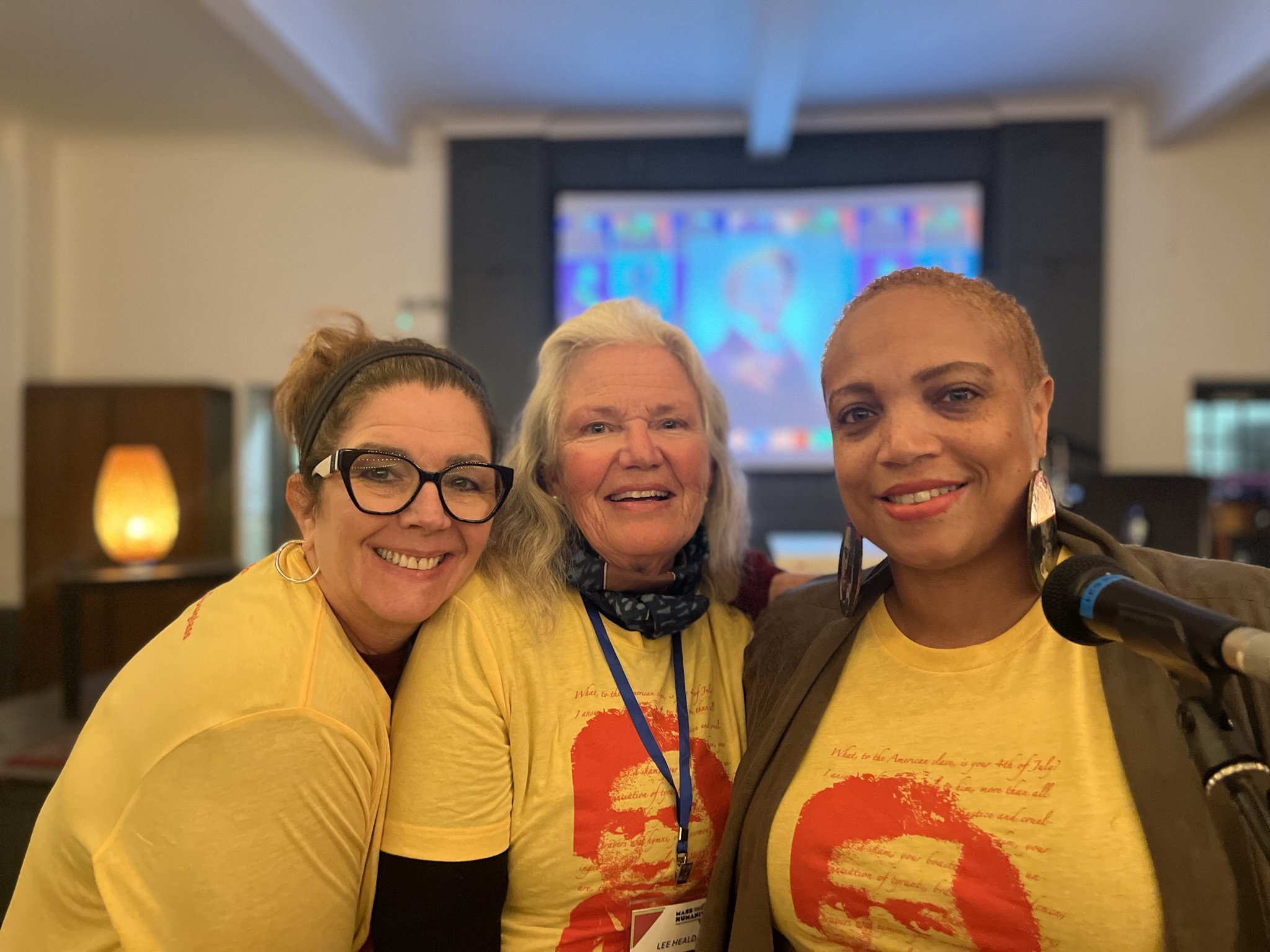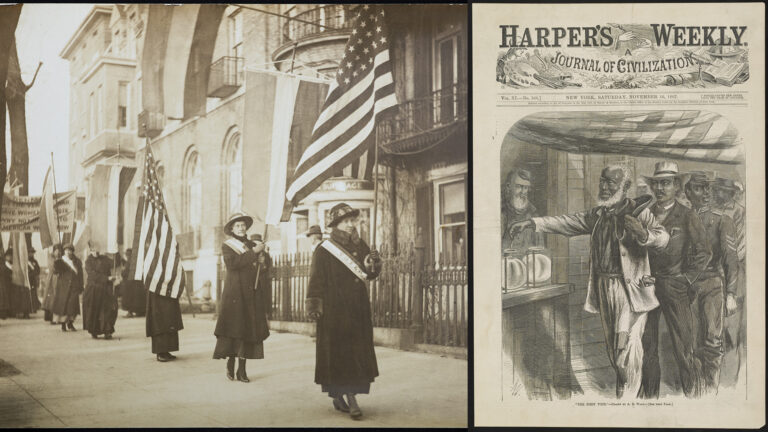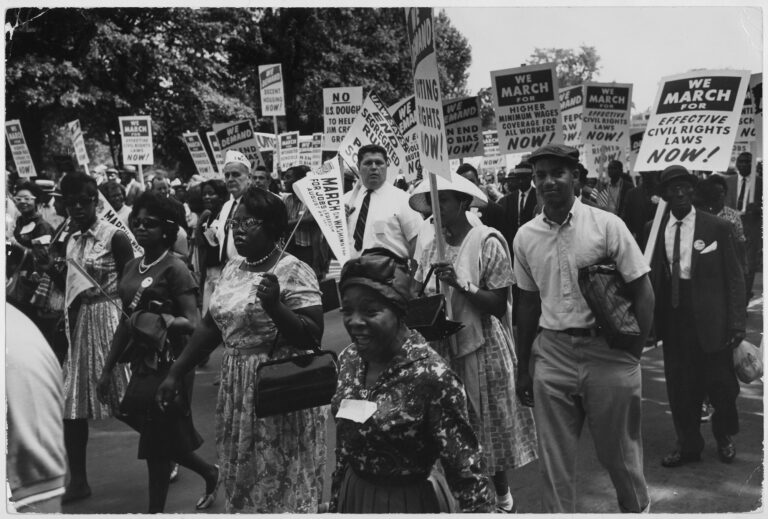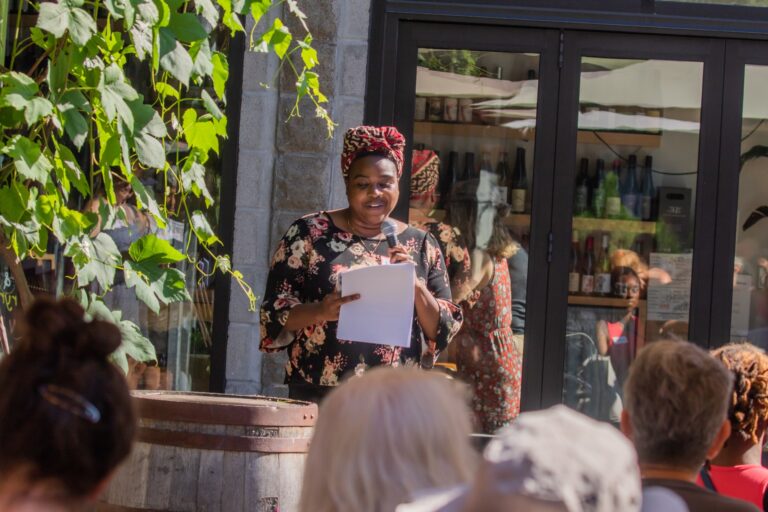Introduction by Brian Boyles
Every Reading Frederick Douglass Together event is different. Your experience is shaped by the time and place of the gathering, the preferences of the community and host organization, and the size of the audience, not to mention the perspectives you bring to the experience.
Our first #DouglassWeek event in Belfast, Northern Ireland, took place at Redeemer Central, the home of a faith-based organization that brings people together to work for peace and the common good in the city. We spoke the words of Douglass in the place where he once spoke: The church stands in the footprint of an earlier house of worship that welcomed Douglass during his visit to Belfast in 1845.
Our hosts asked us to read selections from “What to the Slave is the Fourth of July?” The morning prior to the event, each member of the group selected a passage that spoke to them. Here are several of our selections, along with reflections responding to the questions: Why did you choose those words?
Lee Heald
Board Member, Mass Humanities
How circumspect, exact and proportionate were all their movements! How unlike the politicians of an hour! Their statesmanship looked beyond the passing moment, and stretched away in strength into the distant future. Mark them! Fully appreciating the hardship to be encountered, firmly believing in the right of their cause , wisely measuring the terrible odds against them, your fathers, the fathers of this republic, laid the corner-stone of the national superstructure, which has risen and still rises in grandeur around you.
When Kenneth Morris talked about the speech being in three parts, I found myself thinking that he said what I feel about the first part of the speech. The first part of the speech speaks about the young nation – 76 years old – and what the nation and the citizens have a chance to live up to. Douglass notes how the country can do better, but there is always hope.
I feel that way about civic engagement. The platform exists. We have a chance to live up to the ideas and the foundations of the nation and I am always hopeful.
Cedric Arno
Executive Producer at Music Mania Television Studios; longtime host of Reading Frederick Douglass Together in Worcester
The blessings in which you, this day, rejoice, are not enjoyed in common. The rich inheritance of justice, liberty, prosperity and independence, bequeathed by your fathers, is shared by you, not by me. The sunlight that brought life and healing to you, has brought stripes and death to me. This Fourth [of] July is yours, not mine. You may rejoice, I must mourn. To drag a man in fetters into the grand illuminated temple of liberty, and call upon him to join you in joyous anthems, were inhuman mockery and sacrilegious irony. Do you mean, citizens, to mock me, by asking me to speak to-day?
I chose the sections of the 4th of July speech because we are under assault. I wanted the audience to be prepared because our national truths are being attacked. I wanted to expound on an original truth teller. I wanted those in attendance to vibrate under the weight of a champion truth teller. My point was to tell those in attendance we have been here before – we have been telling truth to imposters of truth for over 100 years. We are the bearers of truth. We wear our truths in the most obvious places – our skin. Our skin is the evidence of things we witness. We bear the scars of faith, dedication, and, ultimately, the truths of our nation.
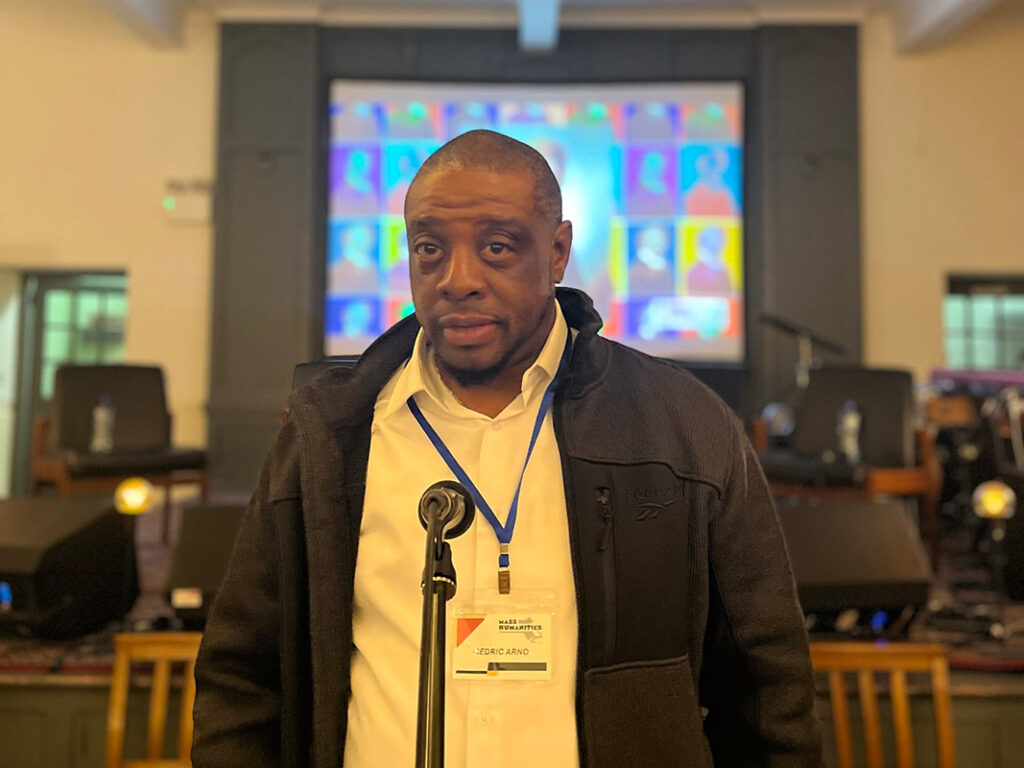
Diane Feltner
Development Manager, Mass Humanities
Must I undertake to prove that the slave is a man? The slaveholders themselves acknowledge it in the enactment of laws for their government. They acknowledge it when they punish disobedience on the part of the slave. There are seventy-two crimes in the State of Virginia, which, if committed by a black man, subject him to the punishment of death; while only two of the same crimes will subject a white man to the like punishment. What is this but the acknowledgement that the slave is a moral, intellectual and responsible being?
I actually didn’t choose the sections that I read. Toya [Bosworth] and Toni [McComb] chose them and I couldn’t have been happier. I’m always nervous speaking in front of people, but after reviewing the lines that were given to me before we got up on stage, the words hit me. They were so powerful that I could almost hear Douglass’s voice and feel his presence, which made for an emotional and heartfelt experience each time.
Toya Bosworth
Program Officer, Mass Humanities
“At a time like this, scorching irony, not convincing argument, is needed. O! had I the ability, and could I reach the nation’s ear, I would, to-day, pour out a fiery stream of biting ridicule, blasting reproach, withering sarcasm, and stern rebuke. For it is not light that is needed, but fire; it is not the gentle shower, but thunder. We need the storm, the whirlwind, and the earthquake. The feeling of the nation must be quickened; the conscience of the nation must be roused; the propriety of the nation must be startled; the hypocrisy of the nation must be exposed; and its crimes against God and man must be proclaimed and denounced”
This is my second favorite portion of the speech because it speaks of the need for urgency. It prompts the audience in 1852 and reminds the reader today that civil rights are not something we can ask for quietly or wait for patiently. It requires immediate action. His words are precursors for calls that would be made repeatedly as time has progressed; while civil rights, particularly, for Black people have teetered back and forth.
Less than fifty years after Douglass spoke those words, Ida B. Wells also offered “stern rebuke.” In her 1900 speech, “Lynch Law in America,” she declared, “Our country should be placed speedily above the plane of confessing herself a failure at self-government. This cannot be until Americans of every section, of broadest patriotism and best and wisest citizenship, not only see the defect in our country’s armor but take the necessary steps to remedy it.”
In 1905, W.E.B DuBois, with whom I share common ancestors, spoke of the pressing need for change in his speech concerning the 15th Amendment. He adamantly proclaimed, “We claim for ourselves every single right that belongs to a freeborn American, political, civil, and social; and until we get these rights we will never cease to protest and assail the ears of America. The battle we wage is not for ourselves alone but for all true Americans.”
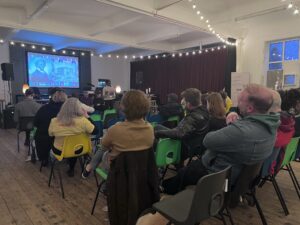
Six decades later, in 1964, Malcolm X addressed this “quickening” in one of his most famous speeches, asserting, “We declare our right on this earth to be a human being, to be respected as a human being, to be given the rights of a human being in this society, on this earth, in this day, which we intend to bring into existence by any means necessary.”
Thirty more years passed and in 1994, Sista Souljah brought the needed “thunder” in her speech, “We Are at War,” to address condemnation of her activism as radical. She voiced, “When I say we are at war, a lot of people become confused. They think… it supports violence, and guns, and military opposition, and things of that nature.” She goes on to say, “So you can be at war not because you want to be, not because you’re war-like people, not because you want to fight back, but because some alien force has declared war upon you.”
In 2014, former Black Panther Afeni Shakur spoke at the Trayvon Martin Foundation Retreat, just two years after Martin’s murder. She was just as fiery as she had been 30 years prior duringher closing arguments for her own criminal trial. In her call to action she said, “What’s behind us, beside us and in front of us is serious. We have to do more than commit to a rally or a one-time event…We should not wait for another senseless killing to make the news before we decide to stand up and pay attention. And we should never be quiet. We must never be quiet when it is safe.”
In 2016 the nation’s “hypocrisy” was further exposed in activist and actor Jess William’s acceptance speech for the BET Humanitarian Award. He demanded, “Now, what we’ve been doing is looking at the data and we know that police somehow manage to deescalate, disarm, and not kill white people every day. So, what’s going to happen is we are going to have equal rights and justice in our own country, or we will restructure their function and ours.” He continued addressing the immediacy. “Now freedom is always coming in the hereafter, but you know what, though, the hereafter is a hustle. We want it now.”
This rousing of nation hasn’t been limited to historic or well-known figures. It has continued to be incited on the burning hot pavements of streets across America, where Black boys and men have been publicly killed by white people with dysregulated nervous systems, who confused their discomfort with being in danger. It has been demanded by high school students after a mass shooting of their peers in places where they should be most safe. It is called for outside of courtrooms when reproductive are rights stripped away by those who are willfully uninformed. It is cried out at this very moment through sit-ins on college campuses in the name of humanity.
Frederick Douglass’s address became a self-fulfilling prophecy for America, race, and human rights, a spell that has been cast. The same conditions discussed in his speech and the speeches of those who came after him remain. They are still uttered, almost two centuries later, cries unheard. As Rev. Dr. Martin Luther King asked less than a month before his assassination, “And what is it America has failed to hear?… It has failed to hear that the promises of freedom and justice have not been met. And it has failed to hear that large segments of white society are more concerned about tranquility and the status quo than about justice and humanity.”
We are insistent with our demands to heard clearly and accurately. Still. Why?
Brian Boyles
Executive Director, Mass Humanities
Mark the sad procession, as it moves wearily along, and the inhuman wretch who drives them. Hear his savage yells and his blood-chilling oaths, as he hurries on his affrighted captives! There, see the old man, with locks thinned and gray. Cast one glance, if you please, upon that young mother, whose shoulders are bare to the scorching sun, her briny tears falling on the brow of the babe in her arms. See, too, that girl of thirteen, weeping, yes! weeping, as she thinks of the mother from whom she has been torn! The drove moves tardily. Heat and sorrow have nearly consumed their strength; suddenly you hear a quick snap, like the discharge of a rifle; the fetters clank, and the chain rattles simultaneously; your ears are saluted with a scream, that seems to have torn its way to the center of your soul! The crack you heard, was the sound of the slave-whip; the scream you heard, was from the woman you saw with the babe. Her speed had faltered under the weight of her child and her chains! that gash on her shoulder tells her to move on.
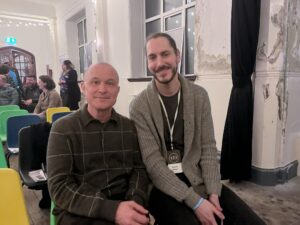
Follow the drove to New Orleans. Attend the auction; see men examined like horses; see the forms of women rudely and brutally exposed to the shocking gaze of American slave-buyers. See this drove sold and separated forever; and never forget the deep, sad sobs that arose from that scattered multitude. Tell me citizens, WHERE, under the sun, you can witness a spectacle more fiendish and shocking. Yet this is but a glance at the American slave-trade, as it exists, at this moment, in the United States.
Douglass describes the journey of enslaved people to the slave market in New Orleans, a place I know well. One sometimes meets people who never learned the details of that brutality, nor understand what a big business the slave trade was in America. This allows them to move on too easily. I believe those details must be spoken. I often choose this section because, as a white man, I believe I owe the past clear-eyed acknowledgement.
I value this section because it avoids metaphor or lyricism: here are the facts and faces of our history. The graphic description here reminds me that I can’t elide this history with a word; rather, every effort I make must begin with acknowledgement and a recommitment to repair.
In my role at MH, I attend many RFDT events, and sometimes I’m asked to speak or introduce myself. I went to Ireland with questions about my responsibility in those situations, whether I understood the power that goes with participating in the growth of RFDT in Massachusetts. That Monday night in Belfast, I felt shaken again by Douglass’ words, calling on my to do more. Standing alongside my traveling companions, I sensed again how important it is to say these truths aloud.
Desiree Taylor
Reading Frederick Douglass Together Research Fellow, 2023
Fellow-citizens, I will not enlarge further on your national inconsistencies. The existence of slavery in this country brands your republicanism as a sham, your humanity as a base pretense, and your Christianity as a lie. It destroys your moral power abroad: it corrupts your politicians at home. It saps the foundation of religion; it makes your name a hissing and a bye-word to a mocking earth. It is the antagonistic force in your government, the only thing that seriously disturbs and endangers your Union. it fetters your progress; it is the enemy of improvement; the deadly foe of education; it fosters pride; it breeds insolence; it promotes vice; it shelters crime; it is a curse to the earth that supports it; and yet you cling to it as if it were the sheet anchor of all your hopes. Oh! be warned! be warned! a horrible reptile is coiled up in your nation’s bosom; the venomous creature is nursing at the tender breast of your youthful republic; for the love of God, tear away, and fling from you the hideous monster, and let the weight of twenty millions crush and destroy it forever!
The passage is a few paragraphs from the end of the speech, beginning with, “Fellow-Citizens! I will not enlarge further on your national inconsistencies.” Hmm. Sounds like today. Many of us say we want good lives, but seem to define, “our lives” very narrowly. Our lives aren’t single and solitary. As John Donne, poet and scholar from the 1600s is often quoted, “No man is an island, Entire of itself; Every man is a piece of the continent, A part of the main.”
Our lives intersect and overlap with the lives of others, and as so are made up of interactions. Our lives are these living things encompassing a myriad of these interactions. As we fight for our needs and hopes, with ever-shrinking definitions of who “we” are, our words and actions seem inconsistent with our expressed high hopes for our country and ourselves.
Today these things come to bear on the “antagonistic force in your” [our] “government, the only thing that seriously disturbs and endangers your” [our] “Union,” as Douglass said then about slavery, which drove a wedge in the government and kept it from belonging to all. In the passage Douglass astutely observes that the people of the United States then clung to slavery “as if it were the sheet anchor of all your hopes,” the sheet anchor being the last hope, the final failsafe against disaster. But in reality, this “sheet anchor” was a venomous creature draining the hopes of the country and its people, while they were seemingly ignorant. He urges them to be warned and to tear the creature away from the breast of the nation, and let the weight and understanding of the whole number of the country crush and destroy it forever.
We did that. Slavery in its chattel slavery terms is gone. But people long dead passed on their dependency on slavery to their posterity, and so we passed through eras of Jim Crow, sharecropping, and exploitations that left too many remnants of the beast alive. And we deal with that today. Audre Lorde wrote about the edge of each other’s battles being the same war. Our individual and collective battles for our hopes and dreams have strings we need to sever, leaving ends free to tie ourselves from so many islands into one whole.

